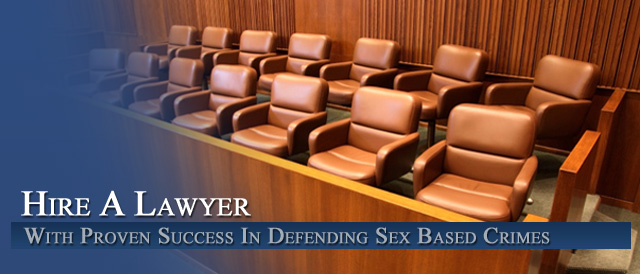




A Case Study of a Reversal By the Colorado Appellate Courts of a Conviction for Sexual Exploitation Charges
by Colorado Criminal Defense Lawyer for the Defense of Colorado Sex Offenses – Crimes – H. Michael Steinberg
The Case of PEOPLE v. MANTOS
The PEOPLE of the State of Colorado, Plaintiff-Appellee, v. John Louis MANTOS, Defendant-Appellant.
In this case – the Defendant, John Louis Mantos, appealed the judgment of conviction entered on a jury verdict finding him guilty of felony sexual exploitation of a child.
The Colorado Court of Appeals – in an extraordinary decision vacated the judgment of conviction on this count and remand the case to the district court for entry of judgment of acquittal. – no new trial.
Introduction
This case concerned whether downloading and saving sexually exploitative material in a share-capable computer file constitutes the felony offense of sexual exploitation of a child, as defined in section 18-6-403(3)(b), C.R.S.2008.
The Court concluded that it did not.
The Defendant owned a computer printer repair business. His business shared office space with a separate business owned by his wife.
In December 2004, defendant’s stepdaughter, who was employed at his wife’s business, was downloading music through a file sharing program installed on defendant’s work computer. While using this program, she showed a coworker “some files with childrens’ names and explaining sexual activities” that she had found on the computer. The coworker eventually contacted the police, who visited defendant at his business on July 18, 2005, and seized his computer.
During a forensic examination of defendant’s computer hard drive, detectives discovered numerous digital picture and video files containing child pornography in the computer’s Recycle Bin. Detectives also discovered a copy of “KAZAA Light,” a computer program used for computer-to-computer file sharing over the Internet (also known as peer-to-peer file sharing). The Defendant later testified that he purchased this computer program online for the purpose of downloading music.
The Defendant was charged with two felony counts of sexual exploitation of a child. The first count alleged that defendant, in violation of section 18-6-403(3)(b), “prepared, arranged for, published, produced, promoted, made, sold, financed, offered, exhibited, advertised, dealt in, or distributed any sexually exploitative material.”
The second count alleged that defendant, in violation of section 18-6-403(3)(c), C.R.S.2008, possessed with intent to distribute sexually exploitative material. He was also charged with 151 misdemeanor counts of possession of sexually exploitative material, in violation of section 18-6-403(3)(b.5), C.R .S.2008.
At trial, the prosecution focused on defendant’s alleged use of KAZAA Light to support its theory of conviction. One investigating detective testified that defendant’s computer contained a folder named “My Shared” that had been automatically created by KAZAA Light. By default, anything saved within the My Shared folder is automatically set to “share” and can be seen by other computer users using KAZAA Light. Thus, if KAZAA Light user A wishes to share a file or even a group of files with KAZAA Light user B (where user B could be an anonymous user unknown to user A ), user A need simply place the file or files within his My Shared folder. User B may then use his copy of KAZAA Light to locate and download the file or files in user A’s My Shared folder without further action by user A.
The detective then explained that a KAZAA Light user has the option of changing a setting on the My Shared folder to “not share” so that files within it cannot be downloaded or even seen by other KAZAA Light users. In addition to this “master toggle” that can preclude the visibility and sharing of all files residing within the My Shared folder, the detective testified that KAZAA Light also allows users to change the share setting of each individual file contained within the My Shared folder. Thus, a KAZAA Light user could prevent the sharing of all items contained within the My Shared folder by setting the master toggle to “not share,” or prevent the sharing of only a select group of files in the My Shared folder by setting the master toggle to “share,” but those individual files to “not share.”
There is no dispute that the master toggle on defendant’s My Shared folder had been manually set to “not share,” while each individual file contained within was on the default “share” setting. The prosecution did not present any evidence that defendant had shared the contents of his My Shared folder with other KAZAA Light users, and one of the detectives testified on cross-examination that there was no way to tell whether the master toggle for defendant’s My Shared folder had ever been set to anything but “not share.”
At the close of the prosecution’s evidence, the defendant moved for judgment of acquittal on the ground that there was insufficient evidence for the jury to convict on count one, sexual exploitation of a child as defined in section 18-6-403(3)(b),….
…. because there was no evidence that defendant ever made the sexually exploitative material or that he distributed the material on his computer to any third party. The court submitted the count to the jury, finding that the terms “prepares” and “arranges for” in the statute could reasonably be understood to include “someone downloading these items [of sexually exploitative material] to completion, saving them so they’re there for further use, and then allowing these potentially shared items to sit there.”
The court concluded, “It’s an issue of fact whether the jury believes that the particular activity claimed by the prosecution was a way of the defendant of procuring and/or arranging for the, the distribution of these items.” It distinguished the instant offense from the offense of possession with intent to distribute on the basis that the instant offense required more than just the intent to distribute; it requires “that [the defendant] have prepared the item or arranged for the item to be distributed.”
At the close of all the evidence, the defendant renewed his motion for acquittal on count one, again arguing that there was no evidence that he had committed any act listed in section 18-6-403(3)(b).
The court denied defendant’s motion.
In closing argument, the prosecutor told the jury she was not required to show that the material had actually been distributed. Rather, she said, the jury could convict defendant of sexual exploitation of a child under section 18-6-403(3)(b) because defendant had “prepared the list.”
The prosecutor asserted that defendant was “reaching out to others saying, ‘I want this specific stuff and I want it downloaded so I can create my own collection, my own list. As soon as I hit go, someone else receives it so that he can advertise it.’ ” The prosecutor told the jury to find defendant guilty because “[he] prepared his list of child pornography and arranged to obtain his child pornography through KAZAA Light.”
The jury acquitted defendant of possession with intent to distribute sexually exploitative material, but found defendant guilty on the remaining misdemeanor counts.
In his appeal, the defendant challenged his felony sexual exploitation of a child conviction under section 18-6-403(3)(b).
Discussion
The Defendant contended that his conviction for felony sexual exploitation of a child was invalid. He asserted that the court misconstrued the meaning of the word “prepares” in section 18-6-403(3)(b) to encompass the conduct of possessing with the potential to distribute sexually exploitative material, and thereby submitted the case to the jury on an erroneous legal theory.
He argued that because the evidence was insufficient to support a conviction under the proper interpretation of the statute, his conviction must be vacated.
The Court agreed and vacated the jury’s conviction!
How the Colorado Appellate Court interpreted the LAW in this area:
In pertinent part, section 18-6-403(3) defines the offense of sexual exploitation of a child as follows:
A person commits sexual exploitation of a child if, for any purpose, he or she knowingly:
(b) Prepares, arranges for, publishes, including but not limited to publishing through digital or electronic means, produces, promotes, makes, sells, finances, offers, exhibits, advertises, deals in, or distributes, including but not limited to distributing through digital or electronic means, any sexually exploitative material.
Here, the General Assembly proscribed the act: prepares any sexually exploitative material.
Under the plain language of the statute, “prepares” describes the act of making or producing the material. See Webster’s Third New International Dictionary 1790-91 (2002) (defining prepare as “make, produce”). As so defined, the term “prepares” is commonly used to describe a creative process resulting in a product: for example, a person can prepare a large meal or prepare a speech. Id.
The People on appeal, however, cite Webster’s dictionary for an alternative definition of “prepares” as “to put into condition for a particular use, application, or disposition.” Id. For example, one could prepare an airplane for takeoff. Relying on this definition, the People contended the word “prepares” described the act of preparing to distribute, and therefore it encompasses defendant’s act of downloading and saving the material for future distribution.
The Court rejected this interpretation because the suggested alternative definition of “prepares” is predicated on additional language which does not appear in the statute.
“Significantly, the General Assembly did not employ the term “prepares” to describe the preparation for an action. For instance, the General Assembly did not insert the language “to distribute,” in connection with the verb “prepares.” The statute says “prepares · any sexually exploitive material”; it does not say “prepares to distribute any sexually exploitive material.”
The Court therefore declined to insert the phrase “to distribute” when the General Assembly did not do so.
Reading the plain language of the statute, the Court concluded “prepares” as used in section 18-6-403(3)(b) means engaging in the process of creating any sexually exploitative material.
“We note that the General Assembly did not intend that the preparation of sexually exploitative material for distribution go unpunished. The General Assembly addressed such conduct in section 18-6-403(3)(c), which proscribes the act of “possess[ion] with intent to · distribute · any sexually exploitative material.” Here, defendant was also charged under subsection (3)(c), and the jury returned a verdict of not guilty.”
“We have determined that “prepares · any sexually exploitative material” describes the conduct of creating the sexually exploitative material. Consequently, defendant’s conduct of downloading and saving the already-existing material in a share-capable computer file is not proscribed by the term “prepares” in section 18-6-403(3)(b).”
“We conclude, therefore, that the error was not harmless and the conviction cannot stand.”
The prosecution alternatively argued to the jury that defendant could be found guilty on the second term listed in the instruction: he “arranged for” the sexually exploitative material.
The Court also concluded that – as with the term “prepares,” – that the particular theory of conviction submitted to the jury under the term “arranges for” was also contrary to law.
Here, the Court and the prosecution differed in their interpretation of the term “arranges for.” The Court allowed the case to go to the jury on the theory that defendant “arranged for the item to be distributed.” The prosecution argued to the jury that defendant “arranged to obtain his child pornography through KAZAA Light.”
The Court found that the prosecution erroneously construed the term “arranges for” as encompassing either arranging for the distribution of material, or arranging to obtain material.
The General Assembly did not proscribe “arranging for obtaining or distributing” the material in the plain language of section 18-6-403(3)(b), and therefore such conduct was not proscribed by the phrase “arranges for · any sexually exploitative material.”
“To the extent the term “arranges for” inherently can be construed as synonymous with “arranges to obtain,” we conclude that such a construction would be impermissible here.”
The Court also recognized that the term “arranges for” is commonly used to describe the steps taken to obtain something. For example, they found that a person can arrange for medical care.
“However, so construed in the present context, this conduct would be indistinguishable from the conduct of taking a substantial step to obtain (or possess) sexually exploitative material. In other words, this conduct would constitute “attempted possession” of the material, which, at the time of the incident here, would constitute a misdemeanor offense of sexual exploitation of a child. See § 18-6-403(3)(b.5) (possession of sexually exploitative material); § 18-2-101(6), C.R.S.2008 (criminal attempt). “
“We therefore will not construe “arranges for” to include “arranges to obtain” as this would result in an unconstitutional interpretation. “
Remedy
In deciding whether to sustain a challenge to the sufficiency of the evidence, the Court must determine whether the evidence, viewed as a whole and in the light most favorable to the prosecution, is sufficient to support the conclusion by a reasonable person that the defendant is guilty of the offense charged beyond a reasonable doubt.
The Court must give the prosecution the benefit of every reasonable inference that might fairly be drawn from the evidence.
The elemental jury instruction tracked the language of section 18-6-403(3)(b) and provided that the elements of sexual exploitation of a child are:
(1) That the defendant,
(2) in the state of Colorado, on or about June 9, 2005 and July 18, 2005 in El Paso County,
(3) knowingly,
(4) prepared, arranged for, published, produced, promoted, made, sold, financed, offered, exhibited, advertised, dealt in, or distributed
(5) any sexually exploitative material.
The remaining conduct identified in the jury instruction on this count includes: published, produced, promoted, made, sold, financed, offered, exhibited, advertised, dealt in, or distributed.
As to the terms “produced” and “made,” the Court concluded the evidence, taken in the light most favorable to the prosecution, is insufficient to support the conclusion that defendant engaged in the process of making or producing the material.
The evidence showed only that defendant downloaded already-existing material in a share-capable computer file. The evidence therefore was insufficient to support a conviction under these two terms.
The prosecution at trial never argued, and never submitted any evidence, that defendant published, promoted, sold, financed, offered, exhibited, advertised, dealt in, or distributed the material. Hence, no evidence supported a conviction under these terms of the statute.
The Court therefore held that based on the foregoing analysis, defendant’s conviction cannot be sustained for the offense of sexual exploitation of a child, as proscribed in section 18-6-403(3)(b), on any of the methods submitted to the jury. They therefore concluded that the defendant’s conviction must be vacated.
Conclusion
“We conclude that defendant’s guilty verdict was based on a legally inadequate theory of liability. We further conclude that the evidence was otherwise insufficient to support a conviction for sexual exploitation of a child under section 18-6-403(3)(b).
The judgment of conviction for sexual exploitation of a child under section 18-6-403(3)(b) is vacated and the case is remanded to the district court for entry of judgment of acquittal on that count.”
Here is the Actual Law of Sexual Exploitation of a Child in Colorado
18-6-403. Sexual exploitation of a child. (Colorado Laws)
(1) The general assembly hereby finds and declares: That the sexual exploitation of children constitutes a wrongful invasion of the child’s right of privacy and results in social, developmental, and emotional injury to the child; that a child below the age of eighteen years is incapable of giving informed consent to the use of his or her body for a sexual purpose; and that to protect children from sexual exploitation it is necessary to prohibit the production of material which involves or is derived from such exploitation and to exclude all such material from the channels of trade and commerce.
(1.5) The general assembly further finds and declares that the mere possession or control of any sexually exploitative material results in continuing victimization of our children by the fact that such material is a permanent record of an act or acts of sexual abuse of a child; that each time such material is shown or viewed, the child is harmed; that such material is used to break down the will and resistance of other children to encourage them to participate in similar acts of sexual abuse; that laws banning the production and distribution of such material are insufficient to halt this abuse; that in order to stop the sexual exploitation and abuse of our children, it is necessary for the state to ban the possession of any sexually exploitative materials; and that the state has a compelling interest in outlawing the possession of any sexually exploitative materials in order to protect society as a whole, and particularly the privacy, health, and emotional welfare of its children.
(2) As used in this section, unless the context otherwise requires:
(a) “Child” means a person who is less than eighteen years of age.
…
(c) “Erotic fondling” means touching a person’s clothed or unclothed genitals or pubic area, developing or undeveloped genitals or pubic area (if the person is a child), buttocks, breasts, or developing or undeveloped breast area (if the person is a child), for the purpose of real or simulated overt sexual gratification or stimulation of one or more of the persons involved. “Erotic fondling” shall not be construed to include physical contact, even if affectionate, which is not for the purpose of real or simulated overt sexual gratification or stimulation of one or more of the persons involved.
(d) “Erotic nudity” means the display of the human male or female genitals or pubic area, the undeveloped or developing genitals or pubic area of the human male or female child, the human breasts, or the undeveloped or developing breast area of the human child, for the purpose of real or simulated overt sexual gratification or stimulation of one or more of the persons involved.
(e) “Explicit sexual conduct” means sexual intercourse, erotic fondling, erotic nudity, masturbation, sadomasochism, or sexual excitement.
(f) “Masturbation” means the real or simulated touching, rubbing, or otherwise stimulating of a person’s own clothed or unclothed genitals or pubic area, developing or undeveloped genitals or pubic area (if the person is a child), buttocks, breasts, or developing or undeveloped breast area (if the person is a child), by manual manipulation or self-induced or with an artificial instrument, for the purpose of real or simulated overt sexual gratification or arousal of the person.
(g) “Sadomasochism” means:
(I) Real or simulated flagellation or torture for the purpose of real or simulated sexual stimulation or gratification; or
(II) The real or simulated condition of being fettered, bound, or otherwise physically restrained for sexual stimulation or gratification of a person.
(h) “Sexual excitement” means the real or simulated condition of human male or female genitals when in a state of real or simulated overt sexual stimulation or arousal.
(i) “Sexual intercourse” means real or simulated intercourse, whether genital-genital, oral-genital, anal-genital, or oral-anal, between persons of the same or opposite sex, or between a human and an animal, or with an artificial genital.
(j) “Sexually exploitative material” means any photograph, motion picture, video, video tape, print, negative, slide, or other mechanically, electronically, chemically, or digitally reproduced visual material that depicts a child engaged in, participating in, observing, or being used for explicit sexual conduct.
(k) “Video”, “video tape”, or “motion picture” means any material that depicts a moving image of a child engaged in, participating in, observing, or being used for explicit sexual conduct.
(3) A person commits sexual exploitation of a child if, for any purpose, he or she knowingly:
(a) Causes, induces, entices, or permits a child to engage in, or be used for, any explicit sexual conduct for the making of any sexually exploitative material; or
(b) Prepares, arranges for, publishes, including but not limited to publishing through digital or electronic means, produces, promotes, makes, sells, finances, offers, exhibits, advertises, deals in, or distributes, including but not limited to distributing through digital or electronic means, any sexually exploitative material; or
(b.5) Possesses or controls any sexually exploitative material for any purpose; except that this paragraph (b.5) does not apply to peace officers or court personnel in the performance of their official duties, nor does it apply to physicians, psychologists, therapists, or social workers, so long as such persons are licensed in the state of Colorado and the persons possess such materials in the course of a bona fide treatment or evaluation program at the treatment or evaluation site;
or
(c) Possesses with the intent to deal in, sell, or distribute, including but not limited to distributing through digital or electronic means, any sexually exploitative material; or
(d) Causes, induces, entices, or permits a child to engage in, or be used for, any explicit sexual conduct for the purpose of producing a performance.
(4) (Deleted by amendment, L. 2003, p. 1882, § 1, effective July 1, 2003.)
(5) (a) Except as provided in paragraph (b) of this subsection (5), sexual exploitation of a child is a class 3 felony.
(b) Sexual exploitation of a child by possession of sexually exploitative material pursuant to paragraph (b.5) of subsection (3) of this section is a class 6 felony; except that said offense is a class 4 felony if:
(I) It is a second or subsequent offense; or
(II) The possession is of a video, video tape, or motion picture or more than twenty different items qualifying as sexually exploitative material.
(6) If any provision of this section or the application thereof to any person or circumstances is held invalid, such invalidity shall not affect other provisions or applications of this section which can be given effect without the invalid provision or application, and to this end the provisions of this section are declared to be severable.
Other Articles of Interest:
- Colorado Sexual Exploitation Prosecution – 18-6-403 – Understanding Peer to Peer File Sharing and Distribution
- 18-3-405.4 C.R.S. Internet Sexual Exploitation of a Child
- Understanding Colorado Sexual Exploitation Child Pornography Law – The Search Warrant
- Colorado Sex Crimes -Understanding the Colorado Crime Of Internet Sexual Exploitation Of A Child 18-3-405.4 CRS
- Q and A on the Colorado Internet Sex Crimes of Sexting, Internet Luring, and Sexual Exploitation of a Child












